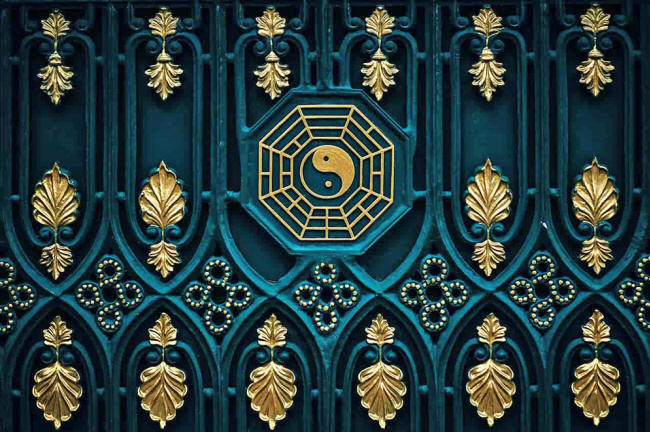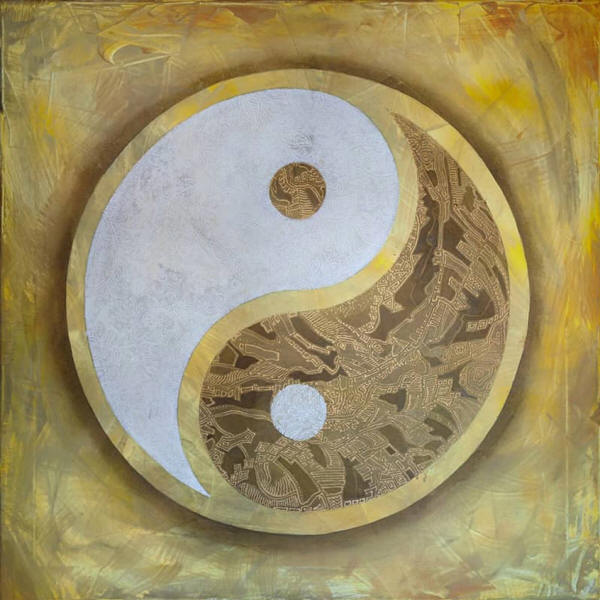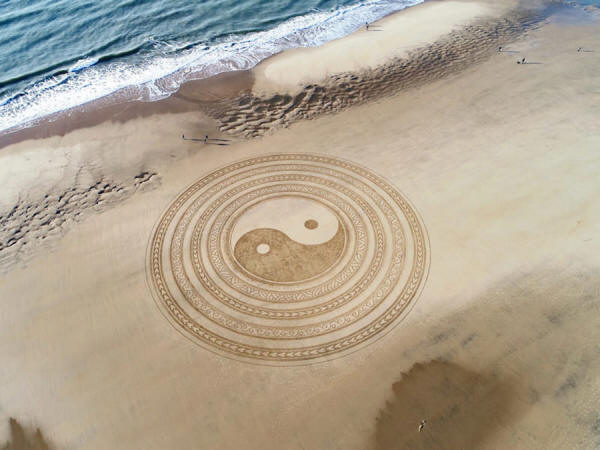1. Everything has
its yin and yang
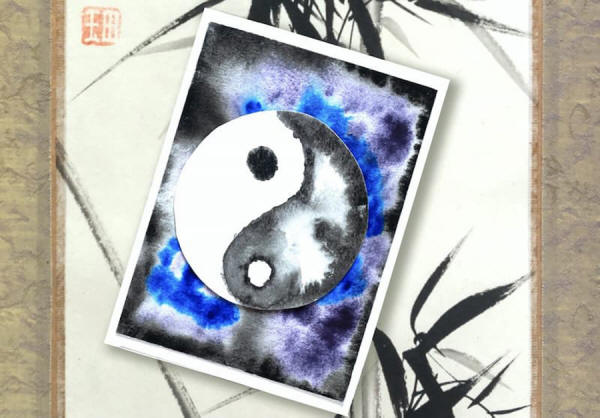
All throughout the Tao Te Ching we read about the interplay of
opposites.
In fact, the whole of
this philosophy is really about non-duality:
or the innate
Oneness of everything.
And yet, despite the
fact that everything is interconnected, there are also two sides
to everything.
In other words, every person, event, situation, object, and
experience in life has a light and dark side. There is expansion
and contraction, male and female, love and fear, inside and
outside, up and down, good and bad.
As the Tao Te Ching says in verse 58:
Bad fortune, yes
-
it rests upon good fortune
Good fortune, yes -
It hides within bad fortune
Despite the apparent
duality of opposites in life, they actually combine and require
each other's presence to exist.
In this sense, the
Tao Te Ching teaches us about the need to embrace all parts of
life.
This is what verse 42 says about the dance of non-duality and
duality:
The Tao gave
birth to One.
The One gave birth to Two.
The Two gave birth to Three.
The Three gave birth to all of creation.
All things carry Yin
yet embrace Yang.
They blend their life breaths
in order to produce harmony.
And in verse 2 Lao
Tzu writes:
Life and death
are born together
Difficult and easy
Long and short
High and low -
all these exist together
Sound and silence blend as one
Before and after arrive as one
Truly understanding
the dance of opposites is a deep form of spiritual integration
and is what makes healing practices such as shadow work so
powerful.
2. Finding
balance is essential
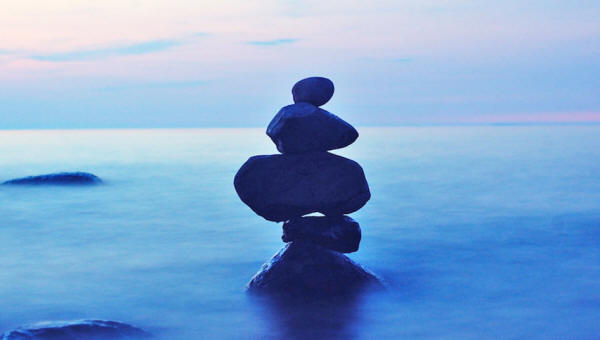
If there is one word that could define the teachings of the Tao
Te Ching, it would perhaps be 'balance.'
The Tao, or The Way, is the path of the centre, the essence of
balance, and if you follow it, your life will be peaceful and
harmonious.
If you look at the laws of nature, you will see that they're all
about balance.
Draw out a pendulum forty degrees to the left and it will go
forty degrees to the right - but it will eventually settle in
the centre. Blend hot and cold water together and you get warm
water, the most pleasant for the human body.
Eat too much or too
little and you get sick, but eat balanced and you feel good.
Too much heat will
burn the planet, too little heat will create ice - you need a
balance of fire and water to have a lush landscape.
As verse 9 of the Tao Te Ching says:
Sharpen a blade
too much
and its edge will soon be lost
Fill a house with gold and jade
and no one can protect it
Puff yourself with honor and pride
and no one can save you from a fall
Balance,
in all areas of life, is crucial for a life well-lived.
3. Wu wei
(effortless action) brings happiness, success, and inner peace
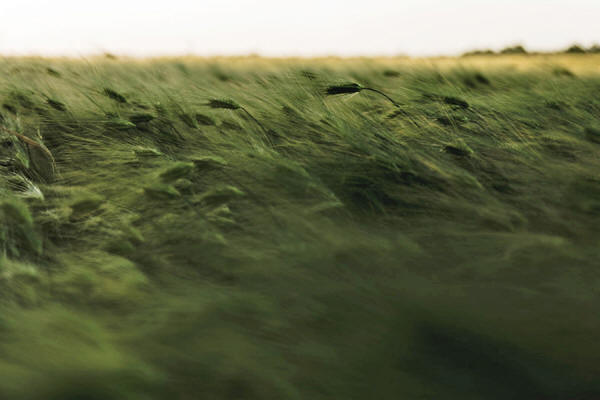
Once you recognize the interplay of opposites inherent in all of
existence (including within you) and find the path of balance,
you experience what is known in Taoism as wu wei or
effortless action.
It takes a lot of effort to hold extremes.
For example, too much
pushing to "work hard and do it all" creates burnout and a poor
quality of life. Too little work creates laziness and lack of
progress.
Both extremes lead
you to failure.
A balance of work and
rest creates a happy person who is in alignment with the Tao and
experiences more moments of flow (or wu wei).
For an internal example, too much rejection of an unhealthy
quality within you tends to make that quality to enlarge or
intensify,
aka... "What you
resist, persists" (resulting in anxiety and depression)...
Too much acceptance
of that quality can result in fragile sentimentality, or worse,
narcissism.
Learning to find
balance and neither reject too much or accept too much such a
quality (essentially non-attachment) leads to more inner peace.
When we let go of extremes, we find an inner harmony that makes
everything we do easier (like a pendulum returning back to
center).
As the Tao Te Ching says in verse 77:
The Sage gives
without relying on his own effort
He completes
without waiting for reward
He illumines
without stepping from the shadow
And in verse 63:
Act without
acting
Give without giving
Taste without tasting...
Let Tao become all your actions
then your wants will become your treasure
your injury will become your blessing
One of the most
direct ways to wu wei is through non-attachment.
4.
Non-attachment leads to balance and wu wei

In the words of philosopher Chuang Tzu (369-298 B.C.E.),
a prominent figure in Taoist philosophy,
The perfect man
employs his mind as a mirror.
It grasps
nothing, refuses nothing.
It receives but
does not keep.
These words reflect
much of what the Tao Te Ching has to say about the nature
of non-attachment.
When we're non-attached, we're not disconnected or somehow
"above" our thoughts and feelings.
Instead, we simply
see that they're impersonal:
they're movements
of energy that rise and fall, come and go - the yin and yang
of life.
As such, we can
approach life in a lighthearted way that doesn't cling or grasp
onto that which would otherwise create suffering.
In the words of the Tao Te Ching,
"Surrender brings
perfection"
The crooked become straight
The empty become full
The worn become new
Have little and gain much
Have much and be confused
So the Sage embraces the One
and becomes a model for the world
Without showing himself, he shines forth
Without promoting himself, he is distinguished
Without claiming reward, he gains endless merit
Without seeking glory, his glory endures
5. The
three most valuable qualities: love, moderation, humility
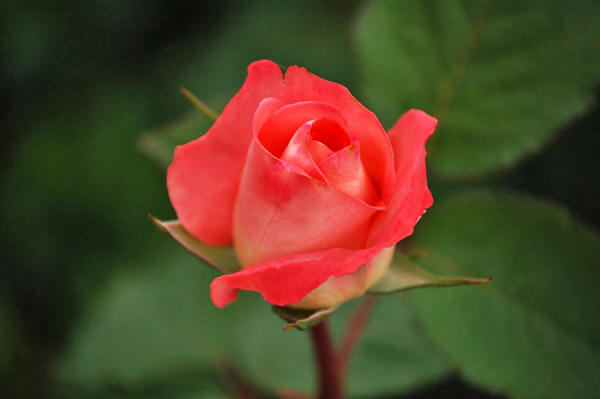
What amazes me about these three qualities that the Tao Te Ching
celebrates is that they run pretty much counter to our culture's
values (aka. shame-culture, excessive consumption, and
narcissistic self-inflation).
As Lao Tzu writes in verse 67:
I have three
treasures that I love and hold dear
the first is love
the second is moderation
the third is humility
With love one is fearless
With moderation one is abundant
With humility one can fill the highest position
Now if one is fearless but has no love
abundant but has no moderation
rises up but has no humility
Surely he is doomed
Over and over again
within the Tao Te Ching, the power and virtue of these qualities
are exalted.
Here we have a
crystallized, immediate, and direct way to practice the Tao:
by cultivating
love, moderation, and humility.
Certainly, such
qualities might not be "trendy" or even desirable in the
mainstream world of egocentrism, but they are - according to
this ancient wisdom text - vital for our joy, abundance, and
fulfillment.
6. Be
yielding like water

In a sublime "f*ck you" (okay, maybe that's a little crass!) to
cultural values of being "tough" and "strong," the Tao Te Ching
actually celebrates the value of being soft, receptive, and
yielding.
Three (of many) passages that highlight this are verse 40:
The movement of
Tao is to return
The way of Tao is to yield
… verse 43:
The most yielding
thing in the world
will overcome the most rigid
The most empty thing in the world
will overcome the most full
… and verse 8:
The best way to
live
is to be like water
For water benefits all things
and goes against none of them
It provides for all people
and even cleanses those places
a man is loath to go
In this way it is just like Tao
Building on the idea
of love and humility, yielding can be thought of as the path to
generating these qualities.
When we're tough and
rigid in thought or deed, the flow of Tao can't enter us:
our hearts become
closed and we get locked into patterns of mental suffering.
Yielding (or
allowing, surrendering, or giving way to life), helps to open us
up to compassion, honesty, forgiveness, and other beautiful
qualities of the Soul that this world is so in need of.
7. Practice
stillness, emptiness, and seeking your treasure within

While the word "meditation" is never explicitly mentioned in the
Tao Te Ching, the practice of
meditation itself - that is, stilling or emptying the mind - is
poetically yet practically discussed all throughout this sacred
text.
Take chapter 16 for example, where Lao Tzu writes:
Become totally
empty
Quiet the restlessness of the mind
Only then will you witness everything
unfolding from emptiness...
Be still
Stillness reveals the secrets of eternity
Eternity embraces the all-possible
The all-possible leads to a vision of oneness
A vision of oneness brings about universal love
Universal love supports the great truth of Nature
The great truth of Nature is Tao
This verse is perhaps
one of my favorites in the whole of the Tao Te Ching simply due
to how rhythmically it flows with truth, wisdom, and beauty.
Later on, in verse 26, Lao Tzu writes in a similar rhythmic
pattern:
One who seeks his
treasure in the outer world
is cut off from his own roots
Without roots, he becomes restless
Being restless, his mind is weak
And with a mind such as this
he loses all command below Heaven
The message here is
quite clear: everything you are searching for is found within
you.
By practicing
silence, stillness, and the emptying of your mind and self, you
will realize what you already and always have:
the Tao...
To go back to verse
1:
A mind free of
thought,
merged within itself,
beholds the essence of Tao
A mind filled with thought,
identified with its own perceptions
beholds the mere forms of this world


